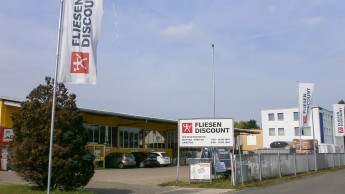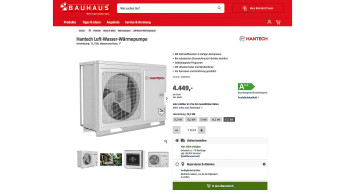
deep insights, facts & figures
30.04.2009
The latest Unibal study of consumer behaviour identifies five types of environmental awareness among DIYers
As part of its research into the subject of sustainability Unibal, a French manufacturers’ association, commissioned a study to investigate the behaviour of French consumers in order to determine what “sustainability” actually means to DIYers. Carried out by psychosociologist Danielle Rapoport, the study identifies five different types of eco-DIYer. This typology presumably has validity not only for the customers of DIY stores in France. The five types are as follows: Eco-active Their profile characterises them as trail-blazers who expect the DIY stores to play a pioneering role and help to spot the latest innovations in the environmental sphere. · Young couples, families in Paris and in the provinces, high socio-cultural level · Technophiles, modern and with a bias to products that offer a combination of economy, ecology and performance · Environmentalist by conviction, they use bikes for transport and give consideration to all solutions that tend towards reducing reliance on polluting industries · Attracted by green technology, by innovations · Great expertise (visits to exhibitions, internet, lectures, discussions with friends) Eco-authentic They are a captive target if the product offer falls within the register of “authenticity”, which is fine until they rebel against offers that are too heavily marketed in DIY superstores. · Well-established families, aged 50+, professionals and business executives living in detached houses (suburban or provincial) · Open to the world and interested in everything; their consumer style is intended to be responsible, but pleasure also counts for them · They favour a gentle modernity, a harmonious quality of life, an ecological economy linking efficiency and respect for the environment. They are vigilant about economising with energy and practising recycling · For them, DIY is the pleasure of making alterations themselves, changing things to their own image: the finished work often involves decorating and repairs · They try to discover materials that are authentic, traditional, naturally “beautiful and healthy”, materials originating from their region or stemming from some specific know-how. They get their inspiration from the shapes and materials of nature, and reinterpret ancient techniques. Eco-creative Their profile, which is closely related to the eco-authentic type, is distinguished by an even more pronounced taste for decoration and creative leisure pastimes. A more consumerist profile, eager for discoveries and creative stimuli. A target group that has been acquired, but nevertheless remains exacting when it comes to the desirability of the offer and expects products that are centred on pleasure and recreational activity as well. · Varying profiles, a strong feminine presence, often at home or in the countryside, relatively comfortable in financial terms · Questioning of the system of mass consumption without being systematically into any alternative modes of consumption · Attracted to creativity and design with a taste for decorative work · Inventiveness: creating, finding solutions, recycling · Appreciative of untreated and natural materials, of kits · Strongly influenced by decorating magazines and internet for ideas and solutions, but also by the network of neighbourhood stores Eco-centred A profile that is by definition more distanced from environmental preoccupations. But an inquiring consumer target, open to everything new. A potentially captive target if the offers of “sustainable” DIY manage to reconcile efficiency, accessibility and simplicity. · Families and couples, mainly in big cities and suburbs, some pensioners · Hedonists, whose purchases are guided by their quality of life, their everyday comfort · Taste for the novel, “having fun”; easily accessible products are the important criteria when it comes to making purchases · Sensitive to the environment from the point of view of their own interest: economic gain and considerations of health · No questioning of their way of life: they are not willing to give up their comfort · DIY responds to a motivation that is based above all on economics · Sustainable DIY is approached from the point of view of individual advantage: economic interest and a healthier environment Eco-defensive A consumer profile that is withdrawn, more “conservative” and resistant to anything new, a target more difficult to win over because of a lack of openness and a pronounced mistrust of green marketing. · Well established families, over 40 years old or retired, mainly in the provinces, indeed in the country, living in a house, relatively comfortable in financial terms but with a tendency to economise · Over-investment in their house and home: frequent maintenance and renovations · Attracted by simplicity, distrust of marketing (rejection of over-merchandised products, of packaging and advertising) · Supporters of a largely mythical “traditional” way of life, even though it is not protective of the environment · Recycling practices as an instinctive and economic reflex (rainwater recovery, wells) · Suspicion of “green” marketing. Further information on the development of sustainability in France’s DIY stores can be found in issue 5-6/09 of DIY International.
Related articles
Read also

 Menü
Menü















